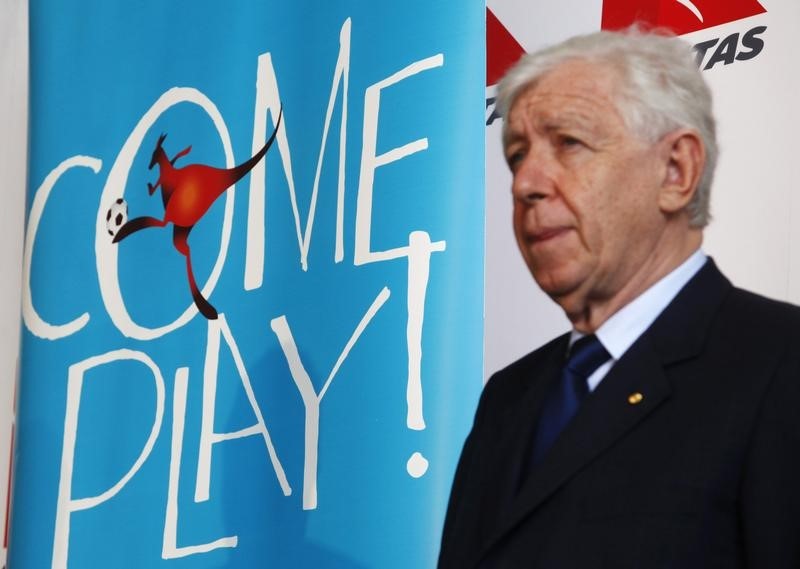MELBOURNE (Reuters) - Australia's failed bid for the 2022 World Cup bid left the country's football supremo Frank Lowy with a bitter grievance.
Now, corruption investigations into global football governing body FIFA threaten to end the 84-year-old billionaire's reign over Australian football on a sour note.
Lowy has promised to retire as Football Federation Australia (FFA) president at the end of the year, but not soon enough for local critics who have rounded on the shopping centre magnate as national police probe the 2022 bid.
The FFA spent some A$42.5 million (21.2 million pounds) of government money on the bid which garnered only one vote by FIFA delegates who awarded the tournament to Qatar.
But it is a payment of A$500,000 for a football facility in Trinidad and Tobago that has attracted the most scrutiny after the arrest of Jack Warner, a former FIFA power-broker and chief of Caribbean football.
Both Lowy and CONCACAF, the regional governing body for football in the Caribbean, North and Central America, said the payment was misappropriated by Trinidadian Warner.
Allegations of impropriety have dogged Australia's bid and well before the vote in 2010. To a large extent, critics are covering old ground.
FIFA's own ethics committee criticised it in a summary of their probe into the bidding process for the 2018 and 2022 tournaments.
The summary, released in November, said investigators had a "prima facie" case that two of Australia's highly-paid consultants violated the bidding and ethics rules.
They had also "indications" that attempts were made to divert funds earmarked for African development projects to countries with ties to voting members.
Lowy insisted Australia ran a clean, if "naive" bid in an open and frank letter to media this week, while the return of a single vote had left him with a "bitter" grievance.
However, the letter has done little to mollify critics who have rounded on Lowy amid the wider FIFA corruption scandal that has shaken the game to its core.
"For the good of the game he has done so much to develop in this country, Mr Lowy should step aside from FFA immediately until all questions can be resolved," the editorial of the Sydney Morning Herald, one of Australia's most prominent newspapers, demanded this week.
Lowy's inability to control the narrative has contrasted with his iron rule over Australian football since its resurrection after the collapse of the old National Soccer League in 2004.
His influence in local business and politics, charisma and boundless energy have helped make the country's A-League a viable competition in a hugely competitive sports market where indigenous football and rugby league have long ruled the roost.
Under Lowy, the national football team has qualified for three successive World Cups and in January won the Asian Cup.
Though senior executives have come and gone in the FFA, Lowy has remained a constant presence, and the local game is now arguably in its rudest health after surviving some financial wobbles in recent years.
Yet, Lowy's legacy now appears in danger, with former colleagues at pains to distance themselves from the World Cup bid and criticising a mooted succession plan which would see his son Steven take over the FFA presidency at the end of the year.
"It's the board of the FFA under the constitution -- the directors of the FFA -- who should appoint a chairman," former FFA board member Jack Reilly told the Australian Financial Review this week.
